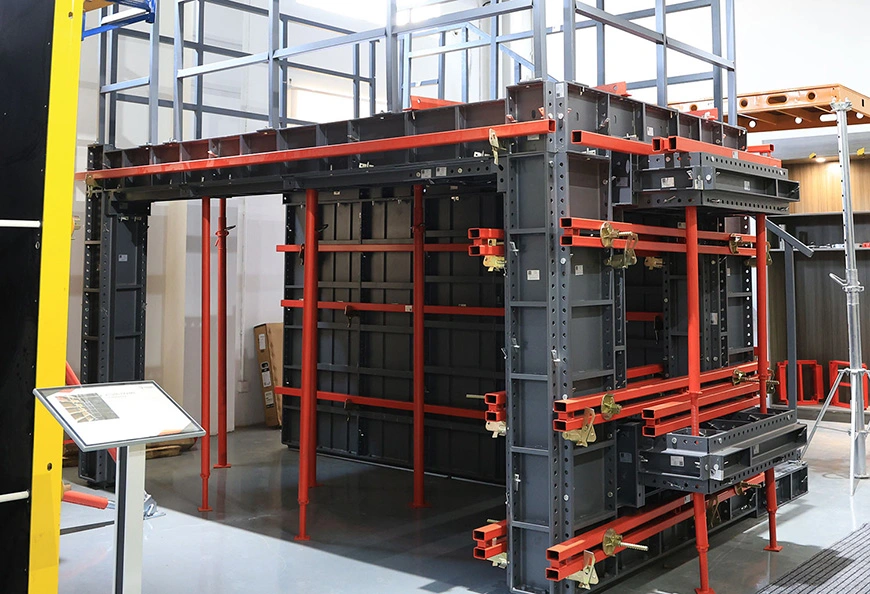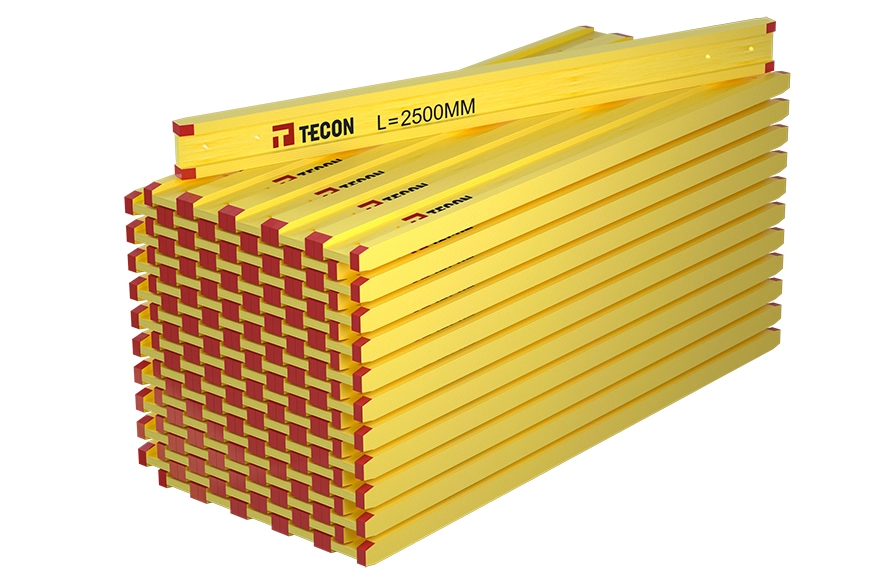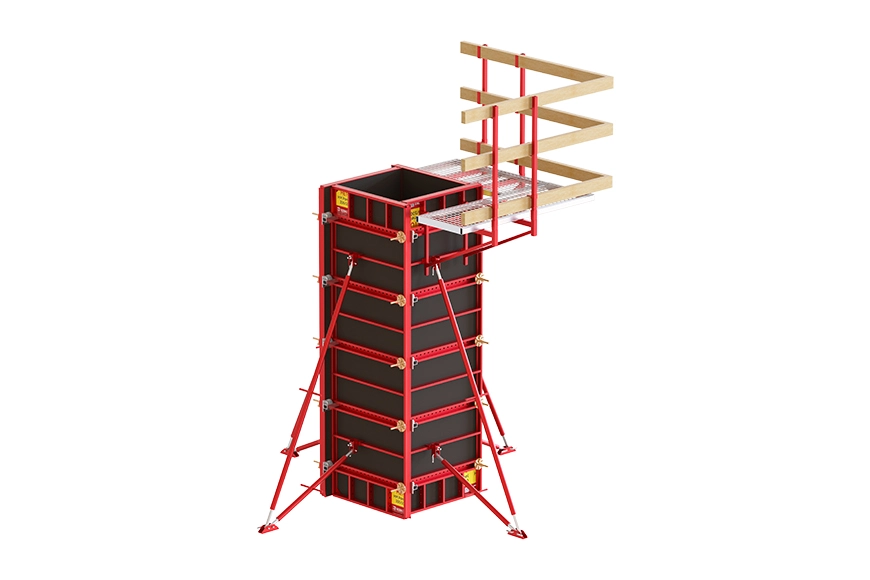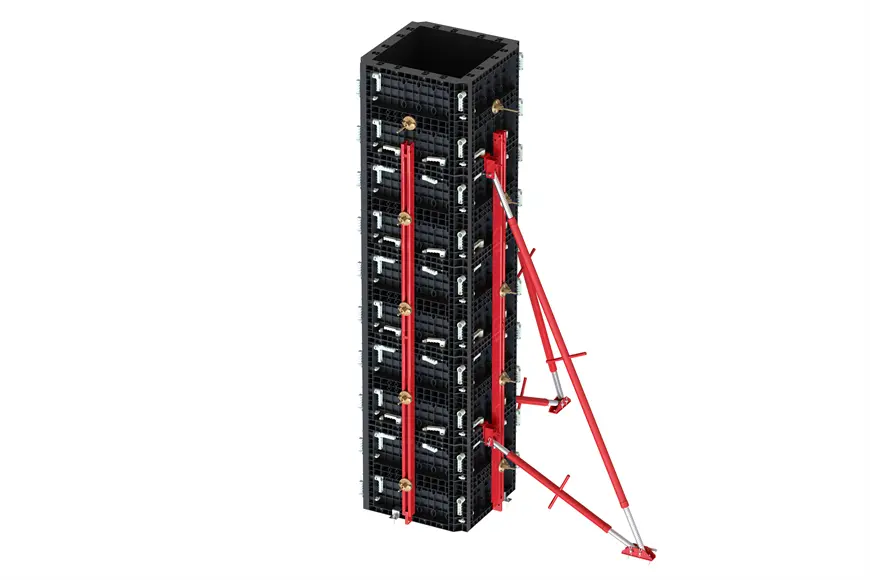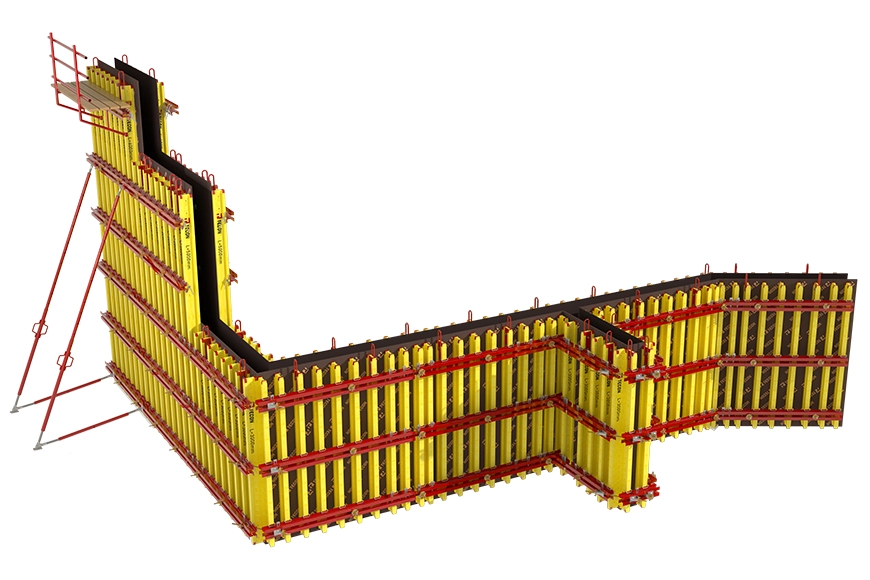When it comes to constructing with concrete, the choice of formwork material plays a crucial role in ensuring the success and efficiency of the project. Different formwork materials offer unique advantages and are suited for various project requirements, site conditions, and construction needs. In this guide, we will explore the most common construction formwork materials, their capabilities, and the situations in which they excel.
Before diving into different types of formwork materials in construction, it's important to understand the qualities that make a good formwork system for concrete construction. Here are some key considerations:
Load-bearing capacity: The construction formwork material should be capable of supporting the weight of both wet and dry concrete without deformation or failure.
Structural integrity: Proper bracing and support should be provided to ensure that the formwork retains its shape during the concrete pouring process.
Leak-proof joints: Formwork systems must have tight and secure joints to prevent any leakage of the concrete.
Dimensional stability: The selected materials should not warp or distort under the pressure of the concrete.
Removability: If a removable formwork system is chosen, it should be designed to be easily removed without causing damage to the concrete surface.
Lightweight: Whenever possible, selecting lightweight formwork materials can help in easy handling and installation.
Timber Formwork
Timber is a popular choice for formwork due to its lightweight nature and ease of use. It is versatile and can be easily cut and shaped to create formwork of any size or height. Timber formwork is economical for smaller projects but may not be as efficient for larger-scale construction. It is not suitable for complex concrete pours that require flexible formwork. It is crucial to ensure the timber is termite-free, and its lifespan is relatively short compared to other materials.
Plywood Formwork
Plywood, a manufactured wooden material, is commonly used in conjunction with timber for formwork systems. It offers durability, lightweight characteristics, and is often used for sheathing, decking, and form lining. Plywood provides a smooth surface finish to the concrete and enhances the strength of the formwork structure.
Steel and Aluminum Formwork
Steel and aluminum formwork systems are known for their strength, durability, and longevity. Although steel concrete formwork is heavier and more expensive than wood formwork, they offer numerous benefits. They create a smooth finish on the concrete surface, reduce the occurrence of honeycombing, and can be used to form curved walls. Aluminum formwork is lighter than steel but slightly less strong.
Plastic Formwork
Plastic formwork systems consist of modular or interlocking components. They are best suited for smaller projects with repetitive formwork requirements. Plastic formwork is lightweight, easy to clean, and offers good surface finish to the concrete. However, due to the prefabricated nature of these systems, they may have limited versatility.
Fabric Formwork
Fabric formwork is a relatively newer formwork material gaining popularity for its flexibility and ability to create unique shapes and architectural details. Lightweight, high-strength fabric sheets are used to mold the formwork, offering increased design freedom and creative possibilities.
Stay-in-Place Formwork
Stay-in-place formwork is designed to remain in place after the concrete has cured. It provides additional reinforcement, axial and shear strength, and helps prevent corrosion and environmental damage. Typically used for piers and columns, this formwork utilizes prefabricated plastic components for easy assembly and long-term structural support.
Permanent Insulated Formwork
Permanent insulated formwork systems serve a dual purpose by providing formwork and insulation simultaneously. These systems enhance the energy efficiency of the structure and may offer additional benefits such as fire resistance, sound dampening, and resistance to rodents. Insulating concrete forms (ICFs) are a common type of permanent insulated formwork that utilizes polystyrene boards as insulation.
Choosing the right formwork material is crucial for successful concrete construction projects. Each type of formwork material has its own strengths and suitability for different project requirements. Selecting the most appropriate formwork material will not only ensure structural integrity but also contribute to the overall efficiency and quality of the project.
